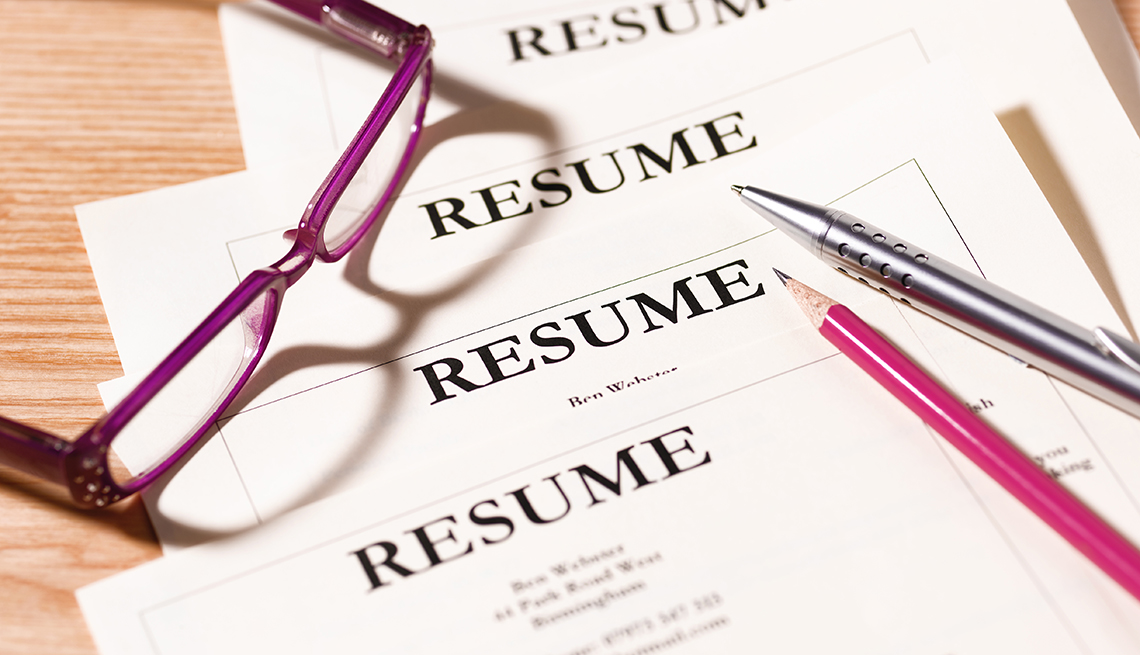Staying Fit
The next time you update your résumé, you may need to do more than just add your recent job experience. If you haven’t revised your résumé so it better fits what employers expect to see now, you could be hurting your chances of landing the job.


AARP Membership— $12 for your first year when you sign up for Automatic Renewal
Get instant access to members-only products and hundreds of discounts, a free second membership, and a subscription to AARP the Magazine.
“Résumés and cover letters are key in demonstrating why you’re the best candidate for a job,” says Toni Frana, career services manager at FlexJobs and Remote.co. “But if you’re not regularly updating your résumé with the latest changes, it may cause employers to focus on age rather than relevant experience.”
Résumés, like haircuts and clothing, change styles over time. Some of the details that were common features of résumés a few years ago may be less fashionable now — and signal to employers that you’re an older applicant. If you haven’t given your résumé a real makeover recently, you may want to consider removing the following five details, according to job placement experts.
1. A career objective
“Historically, career-objective statements provided a short and rather generic description of what a candidate was looking for in their next position,” says Amanda Augustine, career expert for TopResume, which has partnered with AARP on the Resume Advisor service. “While it’s not necessarily bad to help employers determine whether or not their opportunity aligns with your goals, this information shouldn’t take center stage at the top of your résumé.”
The main reason objective statements have fallen out of favor is that they focus on your personal goals rather than explain why the employer should hire you. Augustine recommends that instead of an objective, you should write a résumé professional summary that focuses on what matters most to a recruiter or potential employer: your qualifications. In a few sentences, explain what you’re great at and interested in by describing what you have to offer a prospective employer in a particular type of role.
2. A landline telephone number
If your home number is the only phone you have, then put that number on your résumé, of course. But if you also have a cellphone, consider using only that number on your résumé rather than both. Because of passwords, you may have more control over who answers your cellphone. An employer who calls your cellphone is more likely to reach you directly rather than whoever happens to pick up the phone in your house.
The other — and perhaps less obvious — issue with landline phones is that they increasingly are used mainly by older adults. According to the National Center for Health Statistics, more than 80 percent of people ages 25 to 34 in June 2020 said they had only a cellphone, compared to just 35 percent of people 65 and older.
3. Any dates from more than 15 years ago
You may already know to remove graduation dates from your résumé. But pay attention to other dates, too.
“While age certainly isn't a problem, the assumptions people make about age, referred to as ageism, can be,” Frana says. “It’s unfortunate, but it can be a part of the job search process and sometimes it’s out of our control. To avoid this on your résumé, remove jobs older than 10 to 15 years.”
Frana suggest that if you want to include older positions because they show that you have relevant experience for the position, you can create an "Additional Related Experience" section. This is a shorter section after your professional experience section that lists older positions without dates.
“Every single thing you did does not need to be included in your résumé and can always be included in a cover letter or interview conversation instead,” she says.
4. Fancy fonts and formatting
While it may be tempting to make your résumé look flashy to catch the recruiter’s eye or show off your computer skills, experts say you should resist the urge.




































































